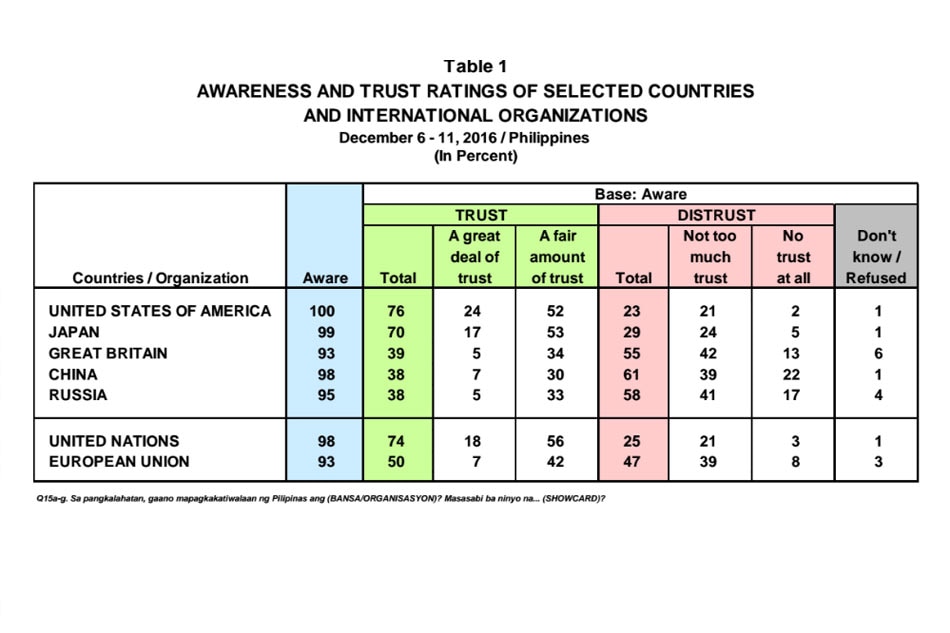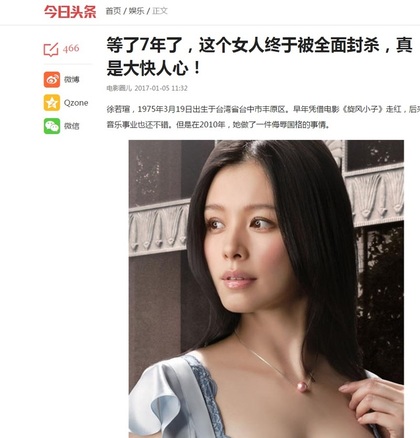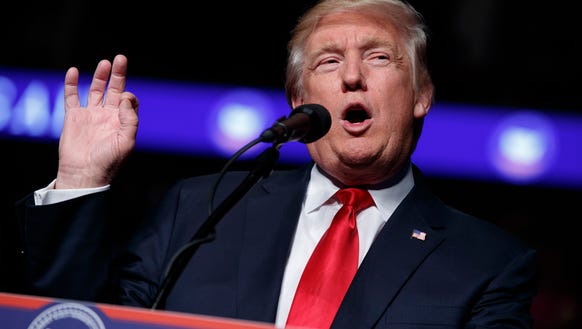
100 chinese fakes Innumerable Chinese fakes of adidas & NIKE & PUMA How to distinguish Japanese from other Orientals Shanghai Disneyland (SAYS Malaysia) |
Roundup
|

Shanghai government inspectors said they found no evidence to support a Chinese television show's claim that Muji stores in the city stocked food imported from areas of Japan allegedly contaminated by radiation. China Central Television's (CCTV) annual "name-and-shame" show that aims to uncover abuses by firms had fingered Muji for mislabelling items. CCTV said the labels hid the fact that the food items originated from Japanese areas that were contaminated after the 2011 nuclear meltdowns in Fukushima prefecture. China restricts food imports from those areas. Muji issued a statement on Thursday saying the labels on its products featured in the report showed the location of its Japan headquarters, which is in the region affected by the China restrictions. Under Japanese law, the address of the company's headquarters must be stated on the packaging, Muji said. "This address is not the address of the production area." Muji said it does not sell products that contain ingredients from Japanese areas subject to the ban. All food products sold in China are put under quarantine inspection before they are imported into China, it added. It also clarified that the Chinese-language label placed over the original Japanese label was in compliance with Chinese laws. |
My Opinion
|

Chinese Premier Li Keqiang took the stage at Beijing's Great Hall of the People on Sunday to deliver his annual report on the work of the government to the nearly 3,000 delegates gathered for the 2017 plenary session of the country's rubber-stamp parliament, the National People's Congress. At a time of demands in the United States and Europe for trade controls, Li warned China faces "more complicated and graver situations" at home and abroad. Both the de-globalization trend and protectionism are growing, Li said. There are many uncertainties about the direction of the major economies' policies and their spillover effects, and the factors that could cause instability and uncertainty are visibly increasing. Chinese leaders say China will defend free trade in response to President Donald Trump's promises to raise duties on Chinese goods, though Beijing's trading partners complain China is the most closed major economy. |
My Opinion
|

The following is a statement issued by the Foreign Correspondents’ Club of China for its members. FCCC statement on harassment of BBC journalists in Hunan province The Foreign Correspondents’ Club of China condemns the harassment of and violence against a team of BBC journalists in Hunan province this week in an attempt to prevent them from reporting the story of a Chinese petitioner who was attempting to travel to Beijing to protest, ahead of the start of the National People’s Congress on Sunday. Despite having the interviewee’s prior consent, BBC correspondent John Sudworth and his team were prevented from meeting her by a group of men who refused to identify themselves. The BBC journalists were assaulted and had their camera equipment broken. Later, in the presence of uniformed police officers and government officials, the same men forced the BBC team to sign a written confession and apology, under the threat of further violence. This violent effort to deter news coverage is a gross violation of Chinese government rules governing foreign correspondents, which expressly permit them to interview anybody who consents to be interviewed. The FCCC is also alarmed that the BBC journalists were forced to sign a “confession” simply for carrying out their professional duties according to Chinese law. The FCCC calls on the Chinese government and police to take steps to prevent foreign reporters who are legally allowed to work in China from being subjected to such violence and intimidation. Journalists in China have reported increasing harassment by authorities. The 2016 FCCC survey of working conditions for correspondents, released last November, found increased use of force and manhandling by authorities against journalists performing their work. Some correspondents have also been called in to unspecified meetings with the State Security Bureau. Fully 98% of the survey’s respondents said reporting conditions rarely meet international standards, while 29% said conditions had deteriorated. Harassment, detention and questioning of sources remains worryingly common. 57% of correspondents said they personally had been subjected to some form of interference, harassment or violence while attempting to report in China. |
My Opinion
|

China has instructed travel agencies in the country to stop selling trips to South Korea, sources said Thursday. The move by the Chinese authorities is the latest in a series of what are viewed as retaliatory acts against the planned deployment of a high-tech U.S. anti-missile defense system in Seoul, known as Terminal High Altitude Area Defense (THAAD). Lotte, South Korea's retail giant, has been under fire since it handed over a plot of land it owned as a golf course to the government to be used as the site for the THAAD deployment. Lotte has been suffering a heavy blow, with its Web sites in both China and Korea experiencing shutdowns from an unidentified hacking attack which was widely suspected to have been initiated by Beijing. |
My Opinion
|

Two "drunk" passengers were seen attacking airline staff moments after being told their flight had been delayed. The men were spotted punching and kicking at the ground crew as they waited at the check-in desk at the Changshui International Airport in Kunming, China. Eye-witnesses caught the fight on a mobile phone and recorded as both passengers started arguing with a number of workers. They were told that due to bad weather, low visibility could endanger them and the hundreds of others on their flight, so the plane had been grounded. The men then started the dramatic fistfight, with other airport employees and security staff all getting involved. An eyewitnesses said one of the fighting passengers was bleeding and looked to have a serious head injury. A statement released by the airport confirmed a fight had broken out in the departure hall. The two unnamed passengers are believed to have been drunk at the time of the fight, the statement said, adding that the passenger’s injuries were of his own doing, after his head hit a solid object. Police are investigating. |
My Opinion
|

A large number of Chinese tourists visit the small station "Asari" in Hokkaido, Japan and do nuisance acts. The Chinese tourists come to Japan in long holidays with "the Vernal Equinox Day" in the lunar New Year in China. The number of them is increasing 8 times in these past four years. Asari Station is the place that a couple visited for their honeymoon in the Chinese movie "Love city" that made a big hit the year before last in China. So there are many Chinese tourists coming over to Asari Station, but they do many nuisance acts and confound neighboring inhabitants and others.
|
My Opinion
|

The guides accompanying a group of Chinese tour ≪the hunt for the Northern lights≫ in Finnish Lapland, was forced to call the police because he feared reprisals from angry tourists who never saw a natural phenomenon, according to Norwegian broadcaster NRK. Police arrived explained to foreigners that the guides can not affect the appearance of the Northern lights. However, tour organizers had to warn that not everything depends on them. ≪The guides were scared and not able to cope with the situation when they were surrounded by angry Chinese tourists. Never faced≫, ? said journalists the representative of police of Lapland henna Kelloniemi. In Finland to celebrate this year’s incredible influx of tourists from Asia. Tours ≪Norway≫, during which guests are trafficked into the country and give to see the Northern lights, is very popular. Natural phenomenon can be observed quite often in the Northern latitudes. However, when the sky is overcast, the lights can be difficult to see. In some companies travelers insure against such disappointments. As reported by NRK, e.g. ≪Hurtigruta≫ offers tourists who bought a 12-day cruise and did not see the lights, go the same round the following year. |
My Opinion
|

China received a downward trend arrow due to the chilling effect on private and public discussion, particularly online, generated by cybersecurity and foreign NGO laws, increased internet surveillance, and heavy sentences handed down to human rights lawyers, microbloggers, grassroots activists, and religious believers. Hong Kong received a downward trend arrow due to Beijing's encroachment on freedoms in the territory, reflected in the detention by mainland authorities of five Hong Kong booksellers, shrinking journalistic and academic independence, and the central government's unilateral reinterpretation of the Basic Law in an apparent bid to exclude pro-independence and prodemocracy lawmakers from the Legislative Council. China flouted international law, ignoring a tribunal's ruling against its expansive claims of sovereignty over the South China Sea and intensifying its repression of dissent within its borders. In China, the Communist Party regime led by President Xi Jinping tightened its grip with the adoption of new laws and regulations on cybersecurity, foreign nonprofits, and religious affairs. Heavy sentences handed down to human rights lawyers, microbloggers, grassroots activists, and religious believers dealt an additional blow to those seeking to improve conditions in the country. Beijing's growing intolerance for individual autonomy at home was mirrored by its intrusions into the affairs of neighboring societies. The leadership issued an unprecedented ruling on Hong Kong's Basic Law with the aim of preventing pro-independence and prodemocracy politicians from taking their seats in the self-governing territory's legislature. The Chinese government similarly adopted a hostile attitude toward Taiwan after the local opposition party, which opposes unification with China, swept to victory in presidential and parliamentary elections. And Beijing has intensified its pressure on governments in the region to return those who have fled China to escape persecution, especially members of the Uighur Muslim minority. In China, an intrusive new cybersecurity law made it easier for authorities to monitor and prosecute online criticism of President Xi Jinping's Communist Party regime. |

Chinese President Xi Jinping has offered a vigorous defence of free trade at the World Economic Forum in Davos in a speech that underscored Beijing's desire to play a greater global role as the United States turns inward. In the first appearance by a Chinese leader at the annual meeting of political leaders, CEOs and bankers in the Swiss Alps, Mr Xi also cautioned other countries against blindly pursuing their national interests, in an apparent reference to the "America first" policies of Donald Trump. Real estate mogul and former reality TV star Mr Trump, who will be inaugurated as US president on Friday (US time), campaigned on a promise to confront China more aggressively on trade. He has vowed to renegotiate or ditch multilateral trade agreements and protect US industries from foreign competition by levying new tariffs on goods from abroad. Mr Xi likened protectionism to "locking oneself in a dark room" in the hopes of protecting oneself from danger, but in so doing, cutting off all "light and air". No one will emerge as a winner in a trade war, Mr Xi said in a nearly hour-long speech in a large conference hall as US Vice President Joe Biden looked on. Although Mr Xi painted a picture of China as a "wide open" economy, his government has come under mounting criticism from trading partners for its continued restrictions on foreign investments at a time when its state-run firms are aggressively pursuing acquisitions in Europe. Today, I think there is a big question mark as to how China pivots in this world, Bob Moritz, global chairman of PricewaterhouseCoopers, said in Davos. Will they be more regional or global in their mindset and, more importantly, in their negotiations? It's something we are going to have to watch over the next 12 months. China, the world's top exporter, is heavily dependent on free trade and would be hit hard by a new wave of protectionism and a broader backlash against globalisation. |
My Opinion
|

Despite President Rodrigo Duterte's sentiments against the United Nations and the United States, a Pulse Asia survey released on Thursday said most Filipinos still trust both. According to the Pulse Asia survey conducted among 1,200 respondents from December 6 to 11, 2016 , the US came out as the most trusted out of the five countries they rated. The US received a 76 percent rating while Japan earned a 70 percent trust rating. United Nations, meanwhile, received a 74 percent trust rating. In contrast, most Filipinos distrust China with a 61 percent distrust rating despite its efforts to forge closer ties with the Philippines. Russia received a 58 percent distrust rating, although it is beginning to foster a better relationship with the Philippines. Most Filipinos, 55 percent, also distrust Great Britain. The European Union received 50 percent trust rating and a 47 percent distrust rating. |
My Opinion
|

Department of Chinese culture (equivalent to the Japanese Agency for Cultural Affairs) announced "the force-out entertainers list" that named the entertainers who were prohibited from appearing on television and working on an entertainment in China. The name of Vivian Hsu was added to the list of 55 entertainers. It is said that she is hated by the Chinese authorities because of her pro-Japanese remark in the past. On her interview held in Tokyo in February, 2010, Vivian said, "Japan is existence like mother bringing me up. It was very valuable eight years when I worked in Japan. I want to work again from now on in Japan if there is an opportunity." The influence of the list has already appeared. Vivian had acted as an advertising tower of Chinese major cosmetics company "CHANDO", but her posters were removed immediately when the list was announced. Most of members in the list are Hong Kong and Taiwanese people and they seem to have gained Chinese attention, because they mentioned democratization in the past. |
My Opinion
|

North Korea kicked off 2017 with Kim Jong Un suggesting the country is nearly ready to test-launch an intercontinental ballistic missile. But President-elect Donald Trump dismissed the claim, saying on Twitter: "It won't happen". He tweeted: "China has been taking out massive amounts of money & wealth from the U.S. in totally one-sided trade, but won't help with North Korea. Nice!" |
My Opinion
|

A thick blanket of toxic haze from China descended on most parts of Korea on New Year's Day. Fine dust concentration was forecast to remain bad all day Monday in the Seoul metropolitan area and Chungcheong, Gangwon, North Gyeongsang and North Jeolla provinces, according to the National Institute of Environmental Research. A red alert for smog has been issued in the Beijing metropolitan region and Hebei Province. Here, fine dust levels will fall slightly on Tuesday and the air will return to normal throughout the country on Wednesday as the wind changes direction. The institute advised people to stay indoors, especially if they suffer from cough or sore throat. |
My Opinion
|

Disney has won a copyright infringement case against a Chinese plagiarism of Disney/Pixar's animated feature "Cars" in a Shanghai court on Thursday. Disney Enterprises Inc. and Pixar, holders of the copyrights of animated comedies "Cars" and "Cars 2" as well as the character images, filed the lawsuit in June to sue G-Point in Beijing and Bluemtv in Xiamen, after they found images and posters of the animated movie "The Autobots" resembling those of "Cars" and "Cars 2." Shanghai New Pudong District People's Court ruled on Thursday that the defendants infringed on the intellectual property rights of Disney/Pixar and caused unfair competition. Therefore, the two companies have to pay 1.35 million yuan (US$194,100) in damages to Disney/Pixar, the court ruled. The plaintiffs' lawyers previously complained at the court that images of the main characters in "The Autobots" -- "K1" and "K2" -- plagiarized the characters "Lightening McQueen" and "Francesco Bernoulli" in "Cars" and "Cars 2." They also said the Chinese name of the movie bore a high resemblance to the Disney and Pixar movies. Attorneys for the defendants replied that images of "K1" and "K2" were created independently, based on the appearance of real automobiles. They also argued they had emphasized that "The Autobots" was a domestic movie, so consumers would not be confused by the name. The Autobots director Zhuo Jianrong has been under fire since 2015, when critics dismissed the film as a copycat. Even the English title of the film has been copied from another Hollywood blockbuster franchise "Transformers." Zhuo fought the accusations and insisted he had never seen the movie "Cars." He said his movie was independently produced and the story is completely different. Zhuo also said he would make a sequel but so far has not secured investment as the first installment lost money and attracted criticism and lawsuits. After he lost his case on Thursday, Zhuo stated that he would appeal the verdict. |
My Opinion
|

The topic attracts attention in China in the past and becomes the topic again recently. Some Chinese say the Japanese descendants who are in Taiwan reach "6 million people". One fourth of Taiwanese people become Japanese descendants if you assume population of Taiwan approximately 23,500,000. This number is considerably too much. This may be wrong. But many Chinese people do not have any doubt for the opinion that thousands of Japanese stayed in Taiwan after the war and the descendants reached the level of millions. There are the documents indicating 345,925 of Japanese residing in Taiwan were sent to Japan in April, 1947. So I cannot understand that "6 million" Japanese descendants are in Taiwan. |
My Opinion
|

Dozens of Chinese tourists rioted last week after being stranded at New Chitose Airport due to record snowfall. At around 8:00 p.m. on Friday, about 100 Chinese tourists went into an uproar in the airport’s international terminal following numerous flight cancellations. Some of the tourists crossed past a gate and engaged in fights with police officers who arrived at the scene. Hokkaido Airport Terminal Co., the operator of the airport, said on Saturday that roughly 6,000 people stayed overnight night on Friday in Hokkaido after about 280 flights were canceled. |
My Opinion
|
|
The Vatican should take steps to improve relations with China, the Chinese head of religious affairs said on Tuesday, a week after the Roman Catholic Church said it was hoping for "positive signals" from Beijing. Pope Francis is trying to heal a decades-old rift with China where Catholics are divided between those loyal to him and those who are members of a government-controlled official church. One of the obstacles to improving relations is the question of who should be able to appoint senior clergy. China says bishops must be named by the local Chinese Catholic community and refuses to accept the authority of the pope, whom it sees as the head of a foreign state that has no right to meddle in Beijing's affairs. Wang Zuoan, head of the State Administration for Religious Affairs, was quoted by state news agency Xinhua on Tuesday as saying China "hopes the Vatican takes an even more flexible and pragmatic attitude, and takes actual steps to create beneficial conditions for improving relations". |
My Opinion
|

Bath facilities "OOEdo hot spring story (大江戸温泉物語)" opened in Shangha, China. And the facilities of the same name are run in Tokyo. The Japanese company announced a comment on December 22. It said, "We do not have any company abroad and tie-ups. We have nothing to do with Chinese company." On the other hand, the employee in Shanghai said, "I don't know the relations with the Japanese company, but we think our business in Shanghai is not a problem." In contrast, the company of facilities in Shanghai announced the counterargument against Japanese company. It said, "We got the permission to use the brand through another Chinese company in March." and showed the dossier that Tokyo side might have issued. The Japanese company denied that and said, "There are no facts that the company in Shanghai insisted on and in fact the dossier shown is not what we issued." On December 26, it was revealed that there was a dormitory of a university at the address of the Chinese company where Shanghai "OOEdo hot spring story" had got permission. The building involved person said, "This is the dormitory for the girl students. I have not heard the name of the company". |
My Opinion
|
|
China's first aircraft carrier will carry out drills in the Western Pacific, in what the navy called part of routine exercises, amid renewed tension over self-ruled Taiwan that Beijing claims as its own. The Japanese Defense Ministry said on Sunday evening that a Maritime Self Defense Force ship and a P3C patrol airplane had spotted six Chinese naval vessels including Liaoning traveling through the passage between Miyako and Okinawa and into the Pacific. China's growing military presence in the disputed South China Sea in particular has fueled concern, with the United States criticizing its militarization of maritime outposts and holding regular air and naval patrols to ensure freedom of navigation. The Western Pacific exercise comes amid new tension over self-ruled Taiwan, following U.S. President-elect Donald Trump's telephone call with the island's president that upset Beijing. |
My Opinion
|

The Japanese company announced a comment on December 22. It said, "We do not have any company abroad and tie-ups. We have nothing to do with Chinese company." On the other hand, the employee in Shanghai said, "I don't know the relations with the Japanese company, but we think our business in Shanghai is not a problem." In contrast, the company of facilities in Shanghai announced the counterargument against Japanese company. It said, "We got the permission to use the brand through another Chinese company in March." and showed the dossier that Tokyo side might have issued. The Japanese company denied that and said, "There are no facts that the company in Shanghai insisted on and in fact the dossier shown is not what we issued." |
My opinion
|

Bath facilities "OOEdo hot spring story (大江戸温泉物語)" opened in Shangha, China. And the facilities of the same name are run in Tokyo. The Japanese company announced a comment on December 22. It said, "We do not have any company abroad and tie-ups. We have nothing to do with Chinese company. On the other hand, the employee in Shanghai said, "I don't know the relations with the Japanese company, but we think business in Shanghai is not a problem." |
My opinion
|